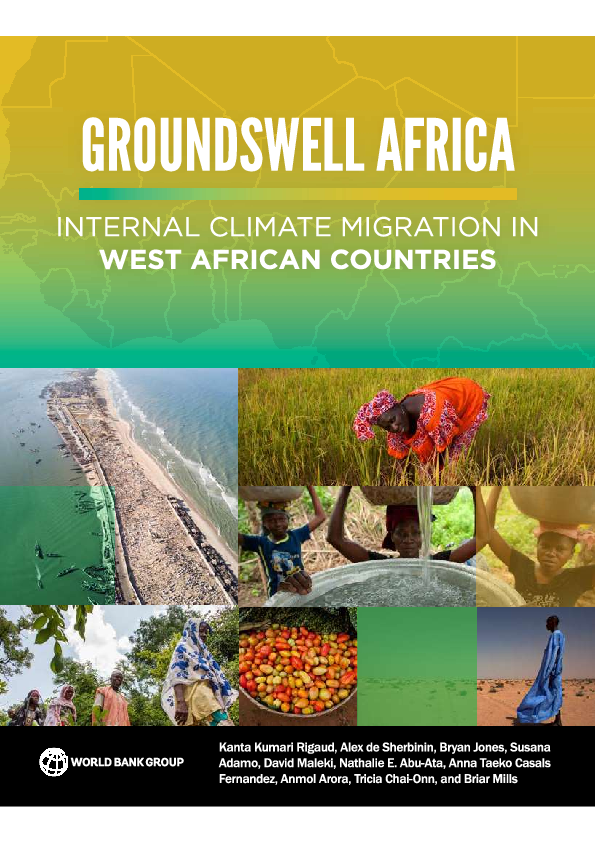 Read this article in French
Read this article in French- Share this article
- Subscribe to our newsletter
Groundswell Africa: Internal Climate Migration in West African Countries
The African continent will be hit the hardest by climate change, with up to 86 million Africans migrating within their own countries by 2050, according to the report Groundswell Africa : Internal Climate Migration in West African Countries published by the World Bank in October 2021.
The data on countries in West Africa and the Lake Victoria Basin show that climate migration hotspots could emerge as early as 2030, and highlight that without concrete climate and development action, West Africa could see as many as 32 million people forced to move within their own countries by 2050. In Lake Victoria Basin countries, the number could reach a high of 38.5 million.
Slow-onset climate-change impacts, like water scarcity, lower crop and ecosystem productivity, sea level rise, and storm surge, will increasingly cause people to migrate. Some places will become less liveable because of heat stress, extreme events and land loss, while other areas may become more attractive as a consequence of climate-induced changes, like increased rainfall. Unattended, these shifts will not only lead to climate-induced migration but will potentially deepen existing vulnerabilities, leading to increased poverty, fragility, conflict, and violence.
People’s mobility will be influenced by how slow onset of climate impacts will interact with population dynamics and the socio-economic contexts within countries, the authors say. However, efforts to support green, inclusive and resilient development could reduce the scale of climate migration by 30 per cent in the Lake Victoria region and as much as 60 per cent in West Africa.
The authors recommend the followings action to reduce the scale and trajectory of climate-induced migration across Africa:
- Net-zero targets: the global community has the responsibility to cut greenhouse-gas emissions to reduce the scale and reach of climate impacts.
- Locality and context matter: countries will need to embed internal climate migration in far-sighted green, resilient and inclusive development planning across Africa.
- Data: investing in research and diagnostic tools is key to better understand the drivers of internal climate migration for well-targeted policies.
- Focus on people: invest in human capital to engage people in productive and sustainable climate-smart jobs.
The Groundswell Africa series is a sequel to the 2018 Groundswell report and complements the recently released Groundswell II report, providing in-depth analysis on potential scale and spread of internal climate migration in West Africa and the Lake Victoria Basin, with country-level analysis from Nigeria, Senegal, Tanzania, and Uganda.
(World Bank/ile)
Read more at World Bank





Add a comment
Be the First to Comment